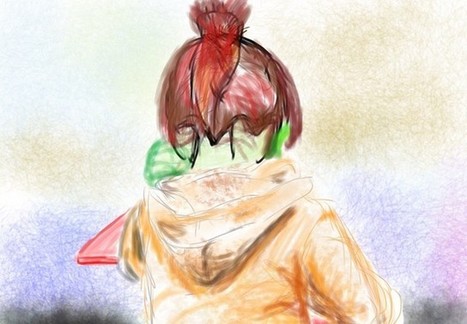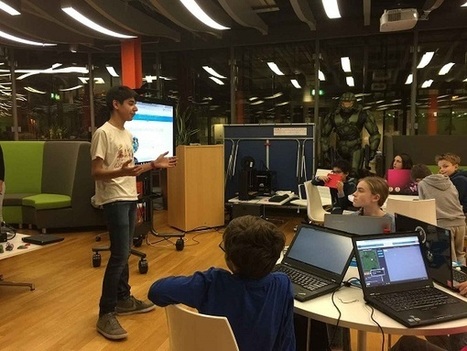14 year old Leo is described as a motivated teenager who loves coding and gaming; together with his mother, Madhumalti, he founded Workshop4Me.org, a non-profit organisation based in Luxembourg, whose objective is to promote coding skills among children and adults. He runs the workshops over the week-ends as his mother works full-time in technology during the week. He recently was the youngest ever speaker at the LIFT Conference in Geneva and delivered his talk in front of an audience of 750 people.
He has been a speaker at PMI Luxembourg event sharing how he uses the Kanban Board to organise his homework. He uses his problem-solving skills to help solve real world problems like solving a glitch at Delhaize supermarket. More recently, he did a 4-week internship at a technical company, KloneWorld, in India in which he developed an iOS app using Swift.
They also ran a paper-based coding workshop for under-privileged children in a slum in India and also ran a coding workshop for 500 students over 2 days in a school in village in India. He was primary teacher and ran two teen-run only coding events for EU Code Week. To take concrete steps in that direction, they run girls-only sessions at Workshop4Me.
Learn more / En savoir plus / Mehr erfahren:
http://www.scoop.it/t/21st-century-learning-and-teaching/?tag=Gifted+kids



 Your new post is loading...
Your new post is loading...

















Tausendsassa, in Österreich umgangssprachlich auch Wunderwuzzi, in der Schweiz Siebesiech, ist eine Bezeichnung für eine Person, die sich durch zahlreiche Begabungen auszeichnet. Vergleichbare Bezeichnungen sind „Multitalent" und „Alleskönner" oder „Universalgenie".
Learn more / En savoir plus / Mehr erfahren:
http://www.scoop.it/t/21st-century-learning-and-teaching/?&tag=Gifted+kids
http://www.scoop.it/t/21st-century-learning-and-teaching/?&tag=Gifted+adults+are+different+from+an+early+age